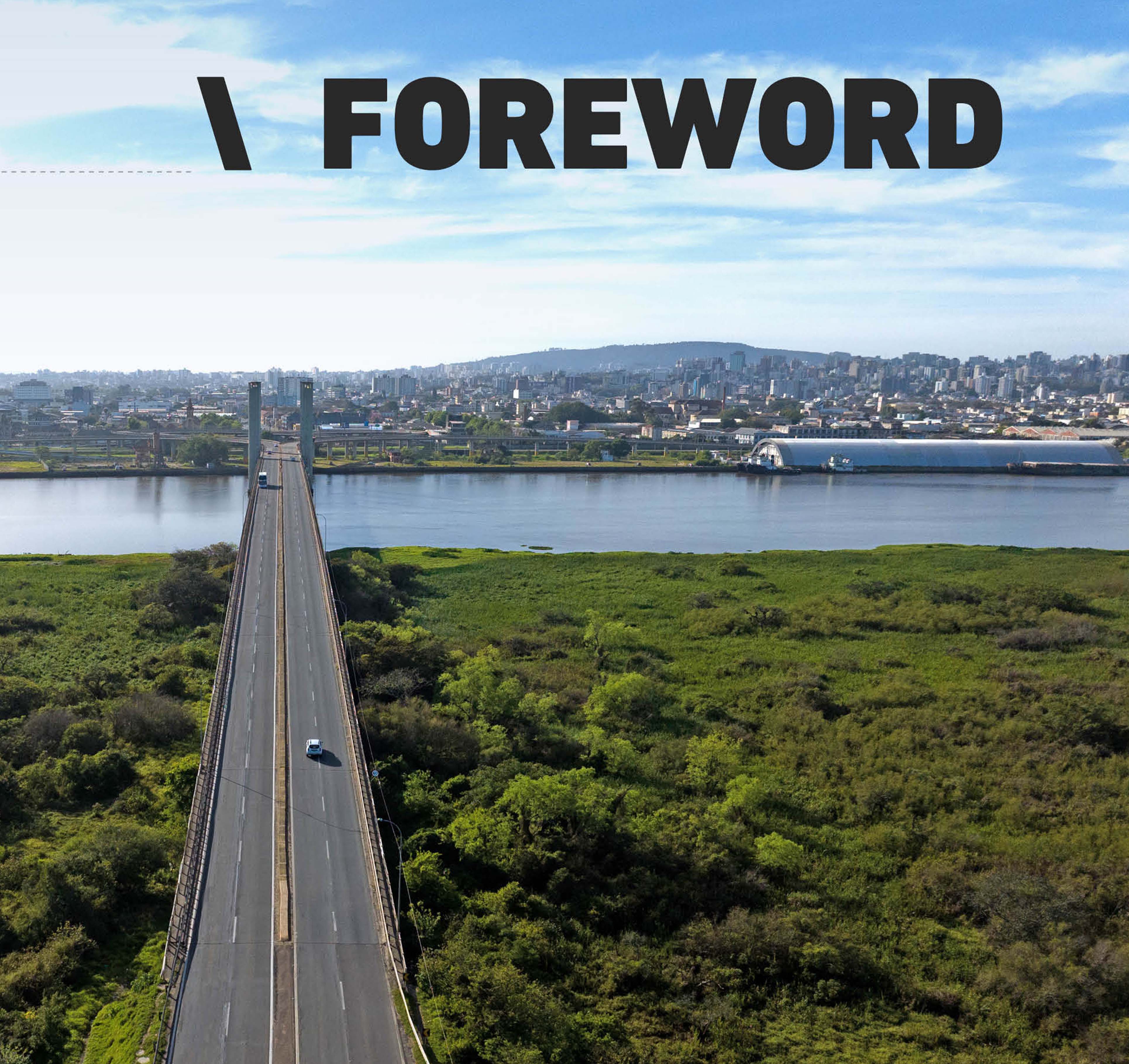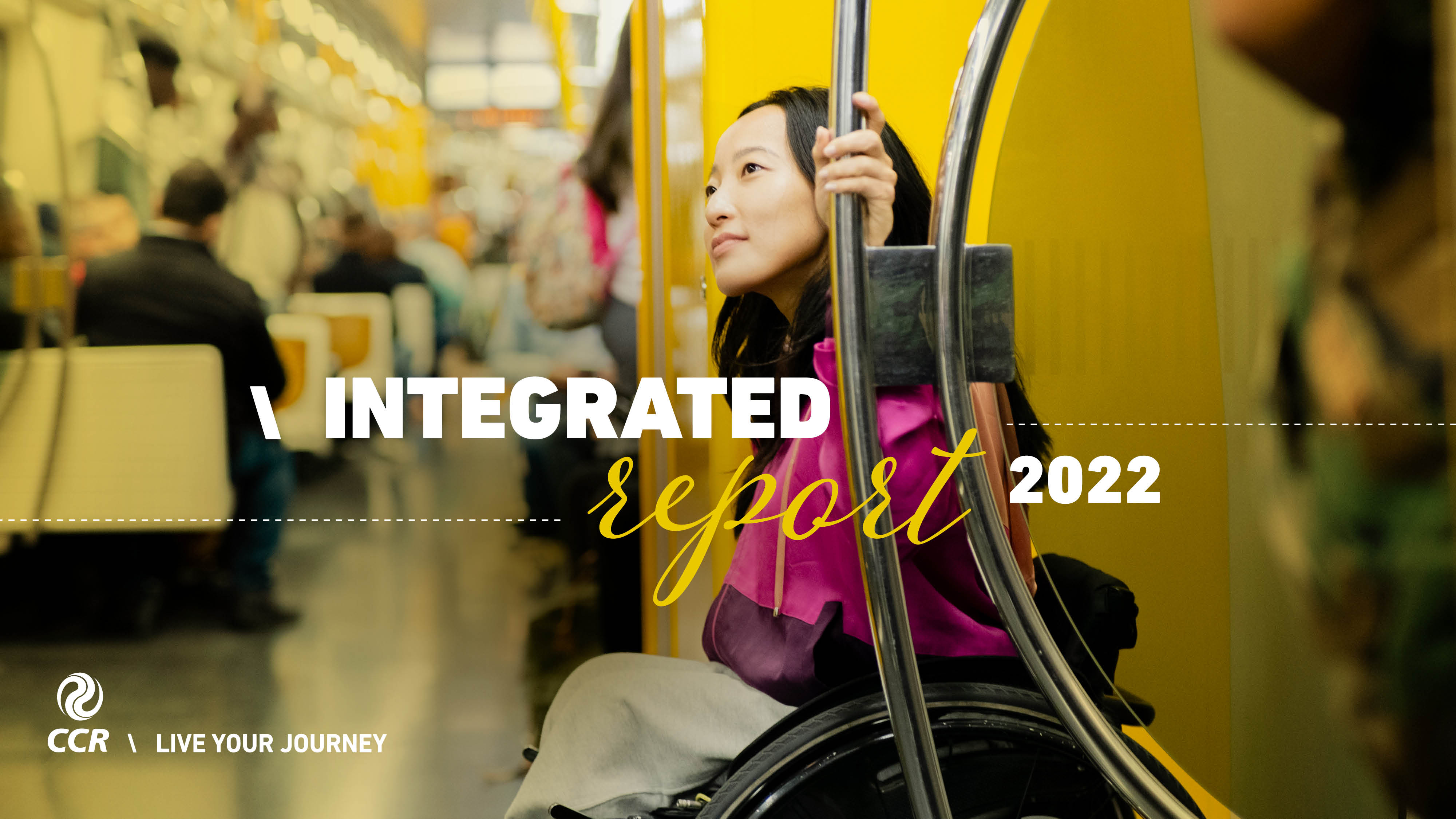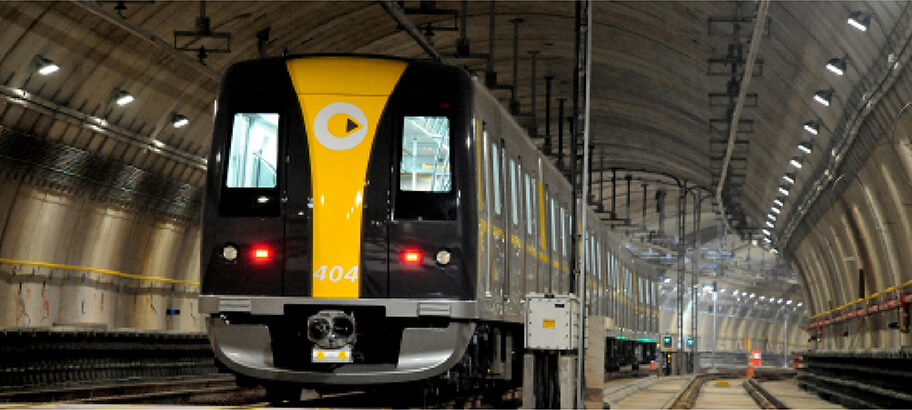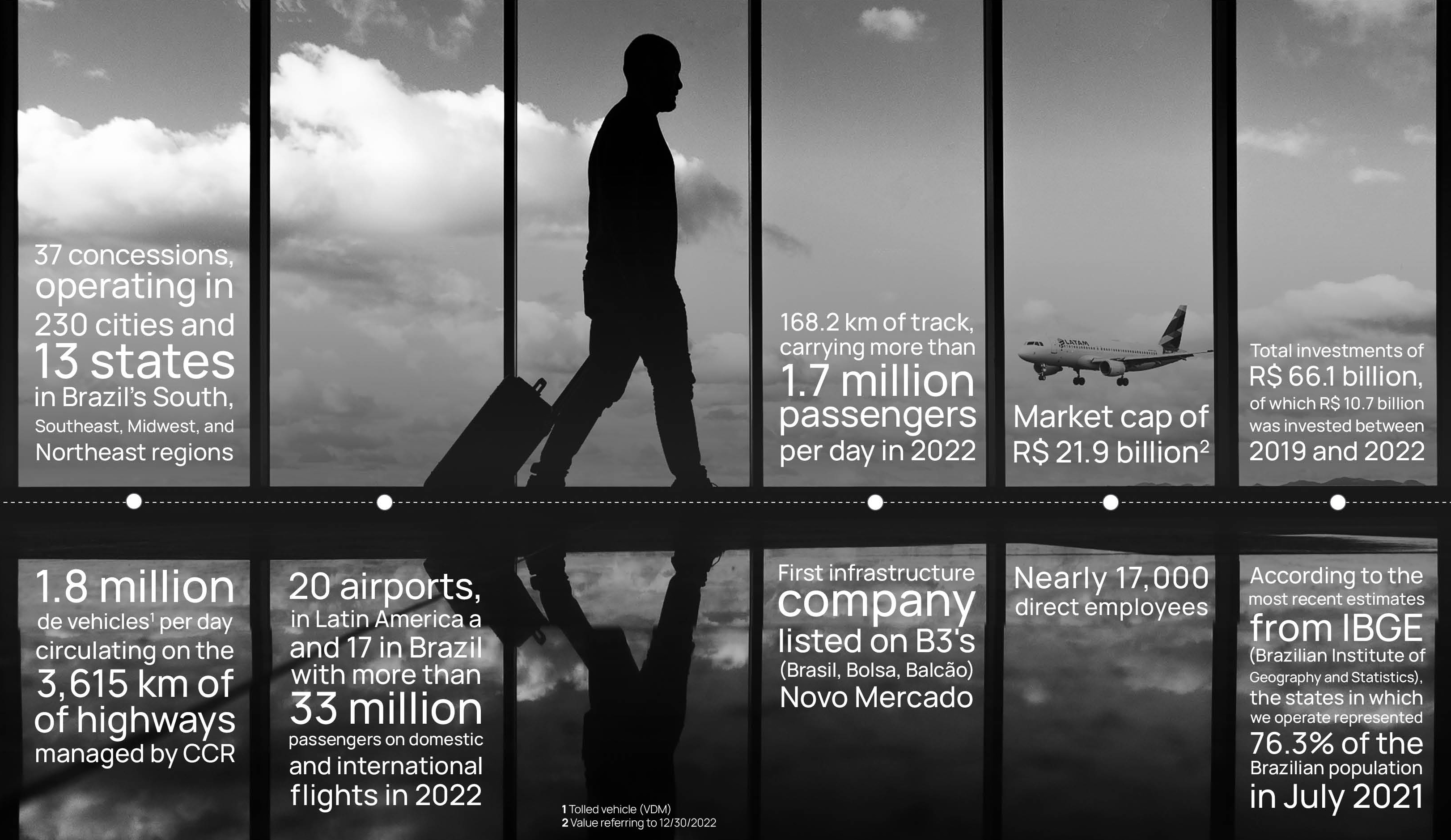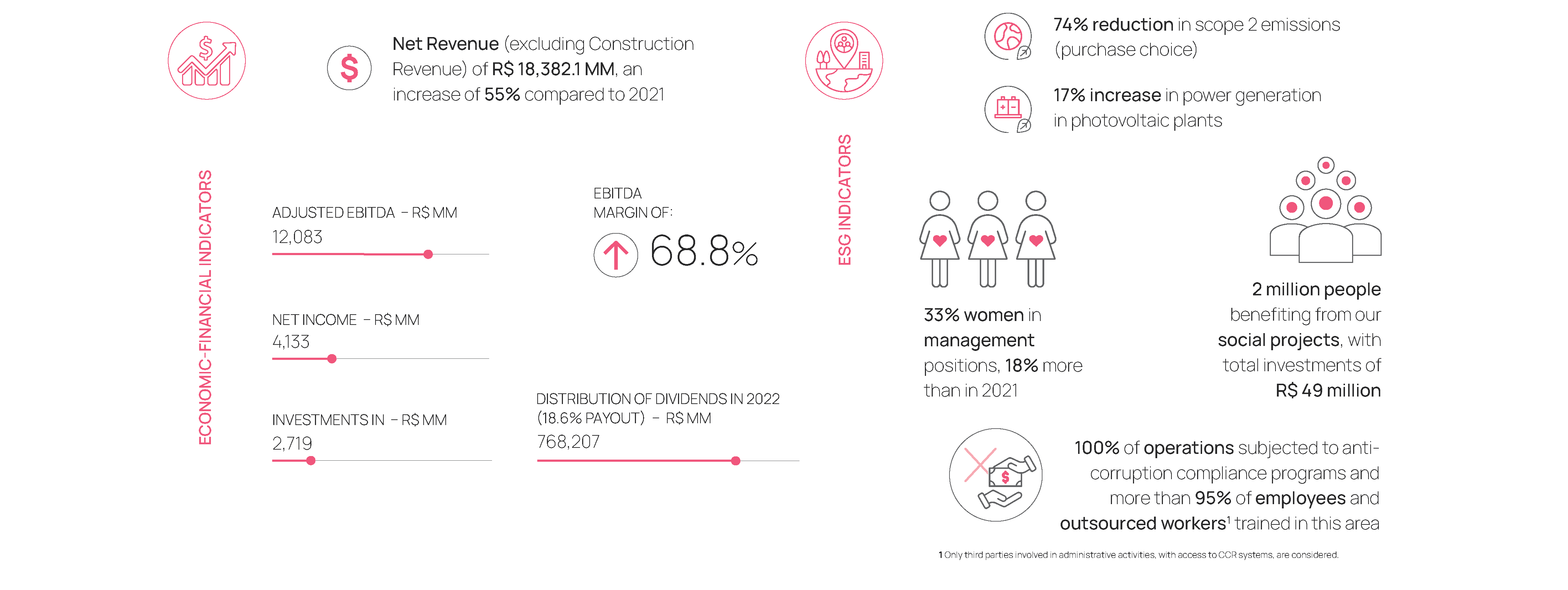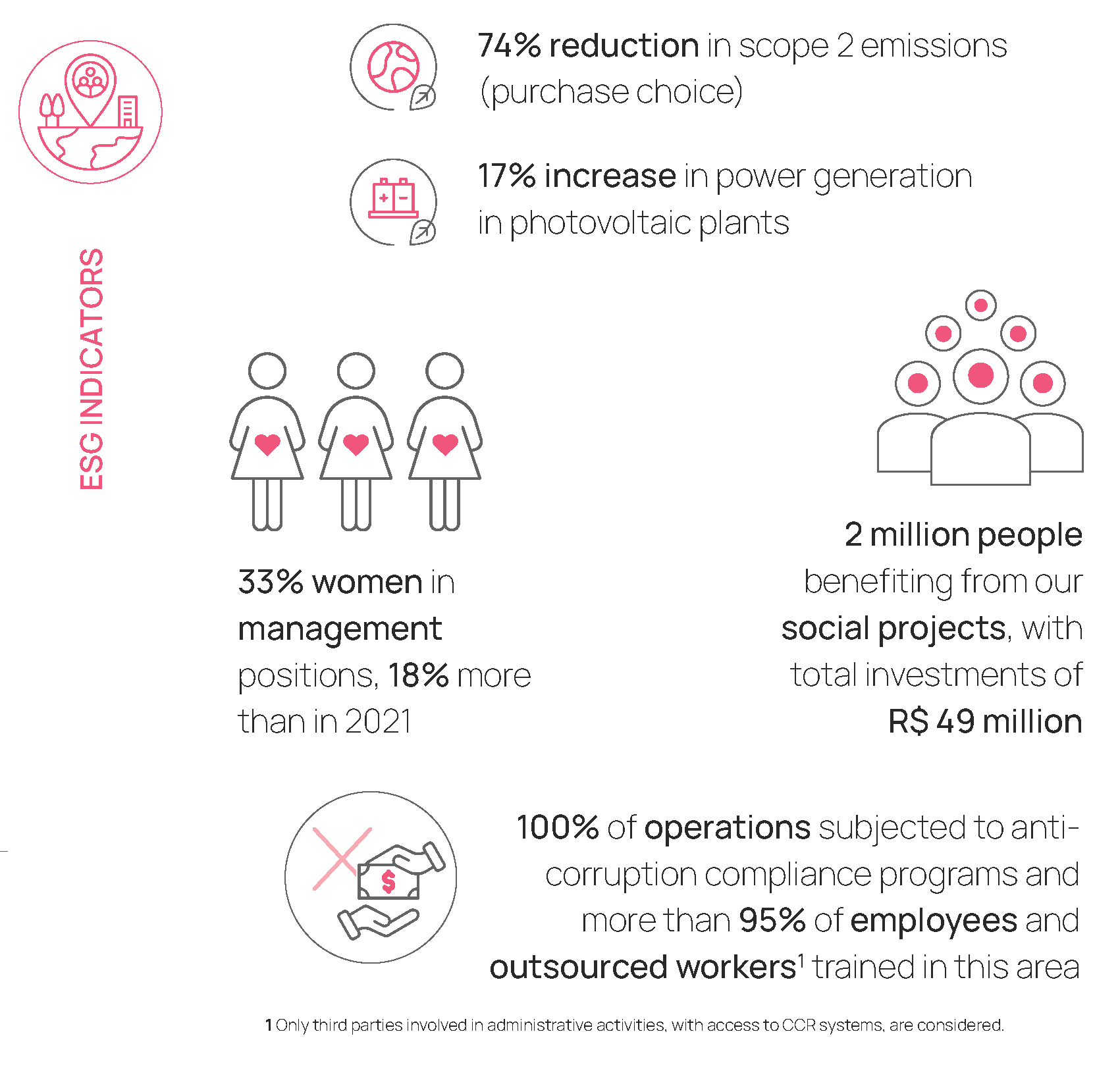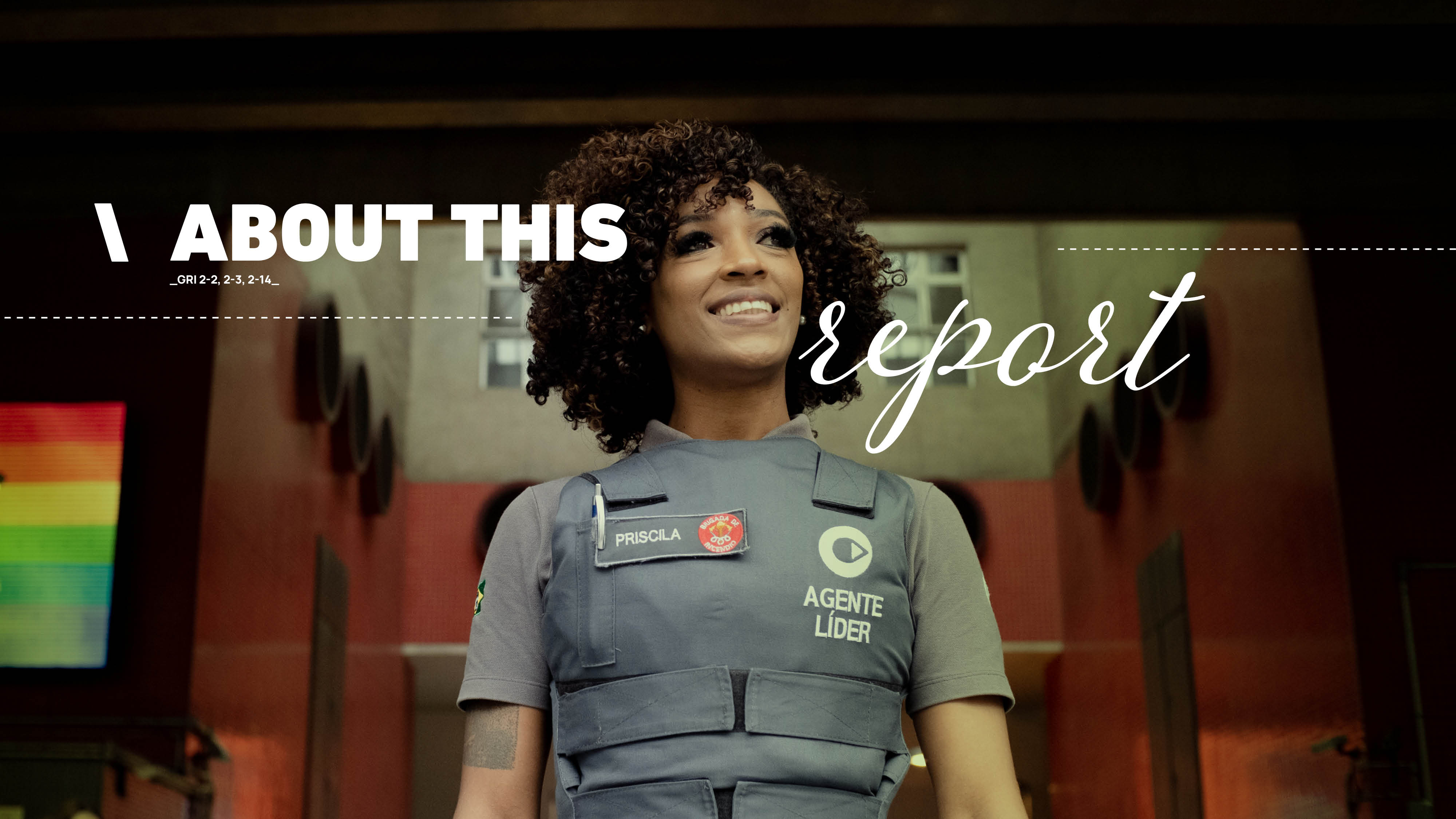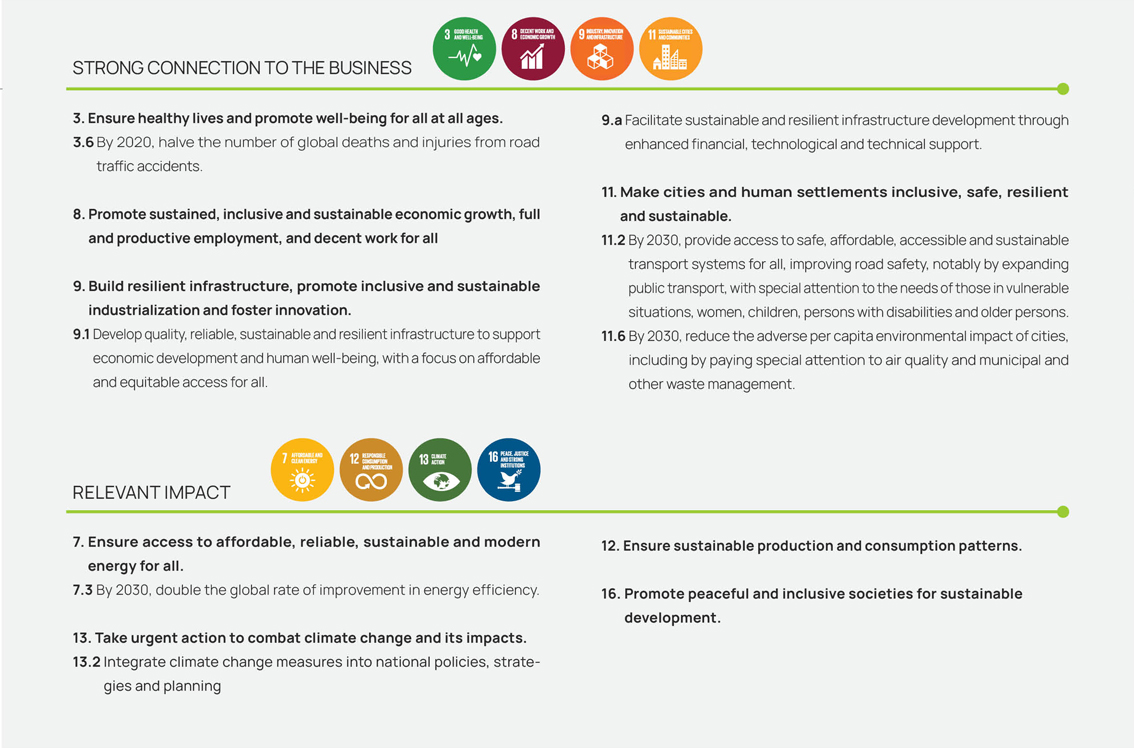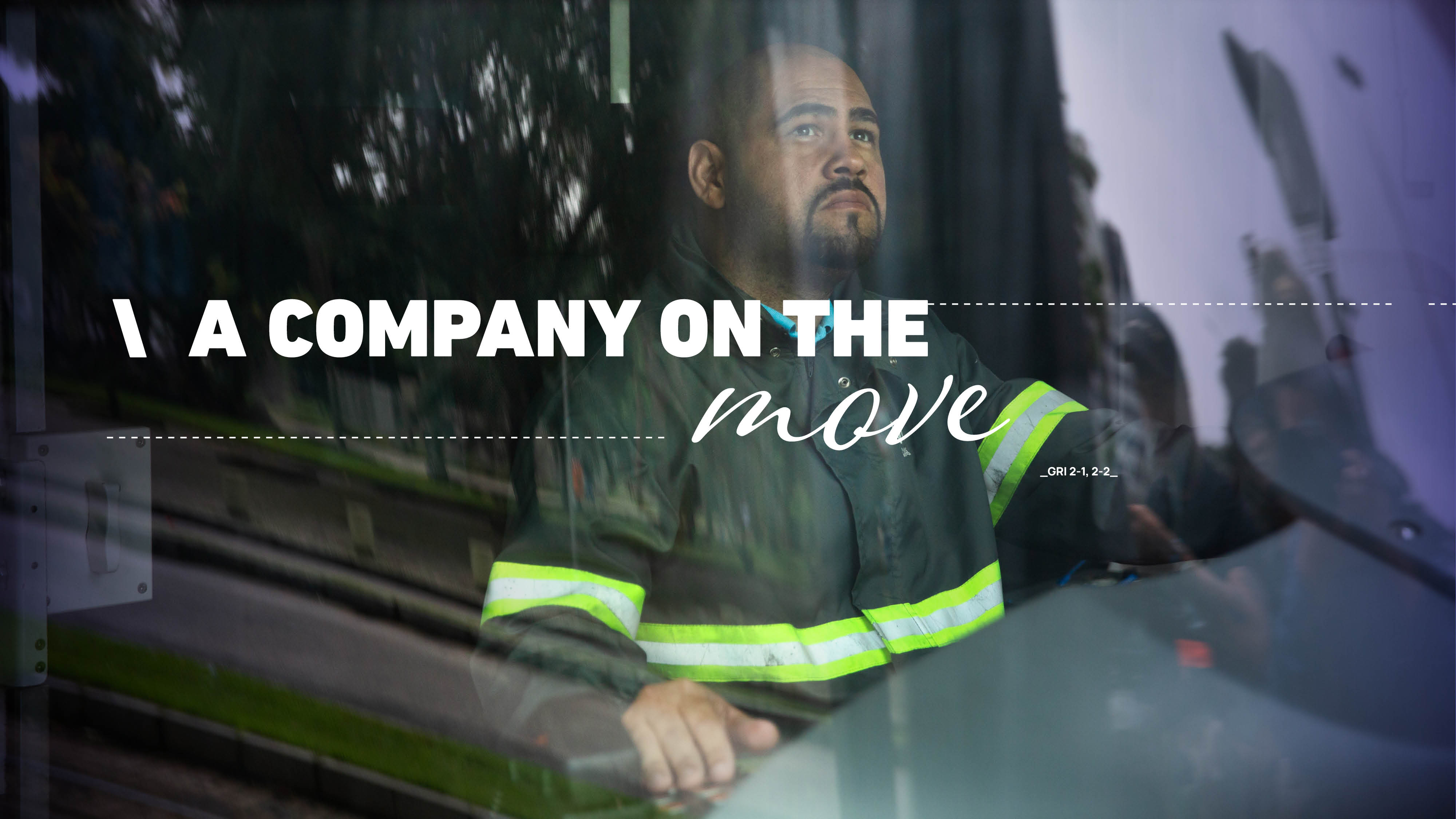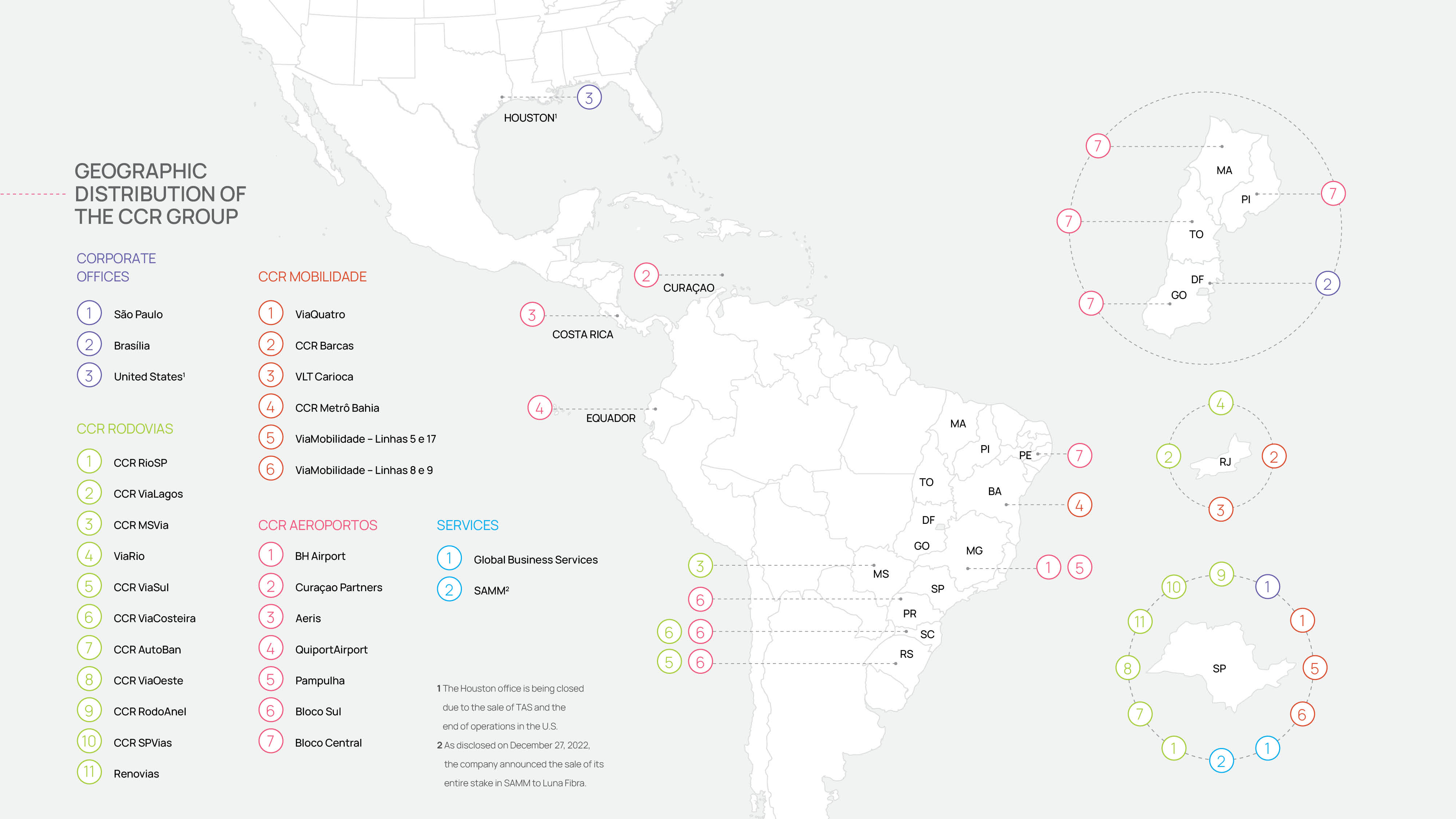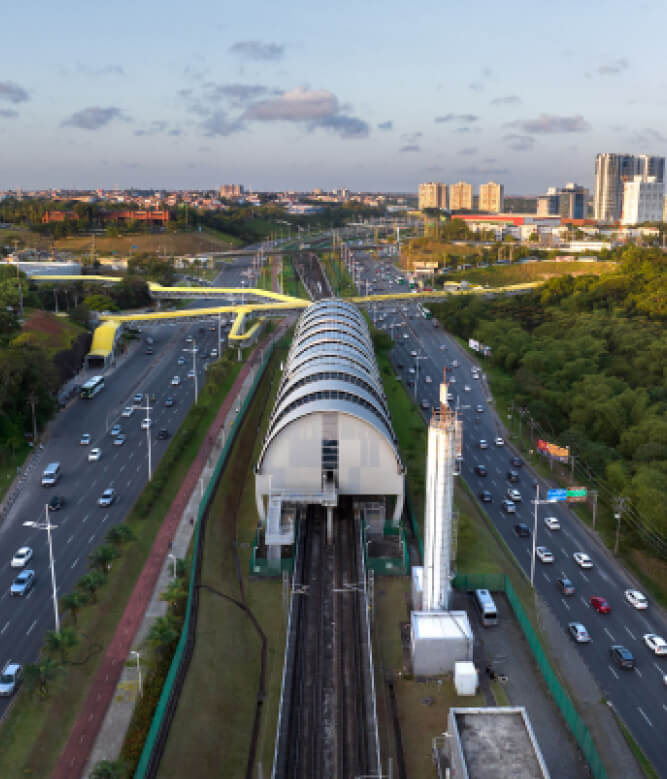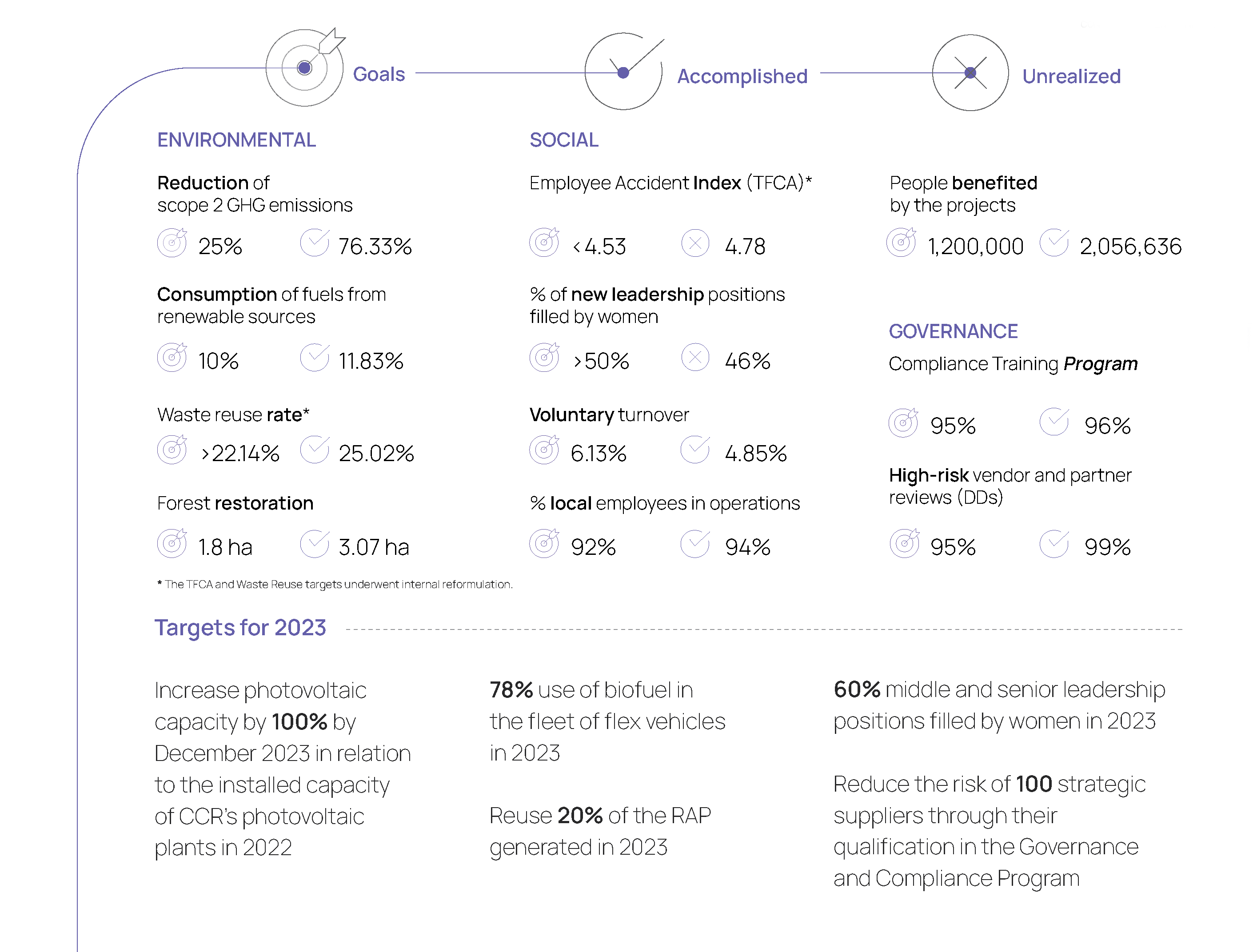The year 2022 was marked by the beginning of the economic recovery and the
consequent improvement in operational indicators for human mobility. With the
worst of the Covid-19 health crisis behind us, the three modes in which the CCR
Group operates reached relevant numbers.
The highlights among the main operating results are the number of equivalent
vehicles on our highways, which increased 8%; the number of passengers
transported in urban mobility, which increased 38.6%; and the volume of
passengers at our airports, which increased 54.1%.
The unification of the Highway Business, the restructuring of the Shared
Services Center/SSC, and the definition of dedicated engineering teams for each
business also contributed to ensuring greater autonomy and speed in
decision-making. All three businesses—Airports, Mobility, and Highways—proved to
be resilient in navigating challenges by choosing projects based on discipline
in capital allocation, which was key in this journey, guided by the holding
company in its role as portfolio manager.
After winning important auctions in the previous year, the year 2022 was about
consolidating and strengthening operations. We took over the new airport,
mobility, and highway concessions and invested nearly R$2.7 billion in 2022.
These achievements were instrumental to our growth and were all based on the
capital allocation agenda, which is at the core of our strategy. We finalized
the divestment of two assets in the portfolio (Quicko and TAS) and announced the
sale of SAMM. These transactions are evidence of our continued focus on
portfolio management. It is worth noting that our investment and growth strategy
remains focused on Brazil, and always in the modes where we operate.
The more than R$1.4 billion investment made by CCR Rodovias is an important part
of the set of challenges overcome throughout 2022. The agreement entered into
with the State of São Paulo was the largest ever in the concessions program,
with major construction projects started in the regions of Osasco and Barueri
and others already completed in Sorocaba and Mairinque.
For the recently acquired integrated concession of highways BR-116/Dutra and
BR-101/Rio de Janeiro-Ubatuba, we maintained the excellence in customer
assistance and services that already existed on Dutra. For BR-101, besides
recovering and reinforcing damaged slopes in our first month of operation when
we faced torrential rains, we dedicated our attention to the service
infrastructure, creating a service called SOS Usuário (SOS User), which provides
mechanical assistance, traffic inspection, pre-hospital care, and a toll-free
telephone line 0800/WhatsApp service. The unit invested more than R$364.1
million in the first year and completed the entire infrastructure for the start
of Free Flow operations, Brazil's first electronic toll payment system without
boom barriers.
BRL 2.5 billion
in
sustainable
infrastructure
debentures
